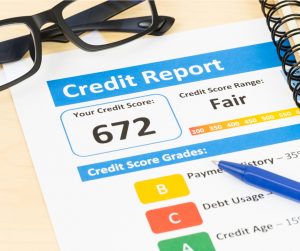
When you’re thinking of buying a home, friends and family often come forth to advise you, caution you, and tell you the rules regarding home mortgages.
While some of these rules have served a purpose in the past, now is a good time to ignore them, because things have changed.
Interest rates are no longer low. In fact, recently they’ve been at 20-year highs.
Mythical rule #1: Always use a 30-year fixed rate mortgage.
That was true for a while, but now, with interest rates much higher, it’s time to take another look at Adjustable Rate Mortgages. (ARMs)
ARMs come in many sizes and styles, with 6 details to examine and consider before deciding upon an ARM. These are:
- The initial interest rate compared to a fixed rate mortgage
- The adjustment frequency – how often can the bank change the rate? In some cases, it could be monthly, so be sure to check.
- The adjustment indexes. This refers to a benchmark, index, or asset such as Treasury bills. Ask your lender what would determine an interest rate change in the ARM you are considering.
- The margin: This refers to index again – you’ll agree at the outset to pay an interest rate that is a set percentage higher than the adjustment index.
- The caps: This indicates how much the rate can change at each adjustment period. The cap could also refer to the monthly payment, but beware. A cap on the monthly payment could put you into a negative amortization situation – owing more after 10 years than the original loan.
- The ceiling: This important number tells you just how high the interest rate can go.
Mythical rule #2: You have to wait to buy a home until you have a 20% down payment.
This rule has actually never been true. It’s good thinking, because a larger down payment will generally result in a lower interest rate. In addition, if you’ve paid 20% down, your loan will not be subject to mortgage insurance – thus saving you money.
However, FHA offers loans with as little as 3.5% down and VA and USDA–backed loans are available at zero down. (Yes, there are closing costs, but no down payment.)
Whether it’s wise to take out a loan with a low or no down payment depends upon your circumstances and details such as how much you must pay for rent and how long you expect to remain in the community.
Mythical rule #3: Never ask sellers to pay your closing costs.
This was true while interest rates were low and buyers were getting into bidding wars over homes. Sellers simply did not have to make any concessions to buyers in order to sell their houses.
Now the tide is turning. Rising interest rates have made it more difficult for buyers, so there are fewer buyers. Wanting to buy a house doesn’t translate to being able to buy a house – especially when home prices are still high.
Many savvy buyers are now asking sellers to pay closing costs in lieu of asking them to accept an offer lower than list price. This makes sense for cash-strapped buyers because it reduces the number of dollars they’ll need at closing.
Mythical rule #4: Don’t pay to buy down your interest rate.
As you may know, it is possible to pay mortgage points and buy down the interest rate on your home mortgage. Essentially, that means paying interest up front rather than having it spread over the life of the loan.
One point equals 1% of the loan amount. While the actual number varies from lender to lender, you can generally expect that buying one point will reduce your interest rate by 0.25%.
Since paying points means paying more at closing, many discourage it, but for buyers who will remain in the house for several years, and who can afford the initial outlay, it could be a wise move.
Consider a 30-year fixed-rate loan for $200,000 at 7.3%. The monthly payment would be $1,371.14. If the interest rate was reduced by .25%, the payment would be $1,337.33, or $33.81 less per month. If the borrower paid one point ($2,000) for that reduction, it would take 59.15 months to come out even.
After the 5-year mark, this borrower would be saving $405.72 each year.
A second benefit to paying points depends upon your income tax status.
Discount points paid to buy down interest rates are the only portion of your closing costs that are tax-deductible. So if you paid the $2,000 as noted above, you could take a $2,000 deduction on your taxes. And If this deduction happened to put you in a lower tax bracket you’d be getting a huge bonus.
The bottom line: Look at all the numbers, do the calculations, and speak with a trusted mortgage lender before making decisions of this magnitude.
We here at Homewood Mortgage, the Mike Clover Group, will be happy to help you determine which is the best course of action for your specific financial situation.
Call us today at 800-223-7409



















